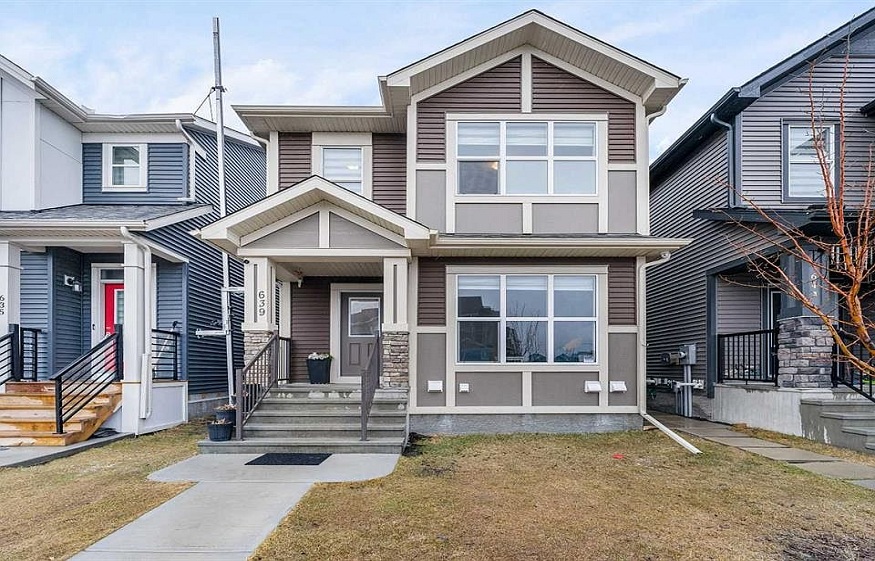When a person passes away, their assets, including property, often go through a legal process known as probate. This process ensures the proper administration of the deceased’s estate, including the distribution of assets to beneficiaries and the settlement of any debts. Probate property specifically refers to real estate owned by the deceased that is subject to this legal process. Trusted estate agents in Ilford say whether you are a beneficiary, executor, or potential buyer, understanding how probate property works can help you navigate this often complex process. Here’s everything you need to know about probate property.
1. What Is Probate Property?
Definition:
Probate property refers to real estate that must go through the legal process of probate upon the owner’s death. During probate, the court supervises the transfer of the property to the rightful heirs, as well as the payment of any outstanding debts or taxes related to the estate.
2. How the Probate Process Works
The Steps Involved in Probate:
The probate process can vary depending on local laws and whether the deceased left a will. However, the basic steps generally include:
- Application for Probate: The executor (if there is a will) or administrator (if there isn’t a will) applies for a grant of probate, which gives them the legal authority to deal with the deceased’s estate. This is necessary before any property can be sold or transferred.
- Valuation of the Estate: The executor or administrator must obtain an accurate valuation of all assets, including any real estate. This is required for calculating inheritance tax (if applicable) and determining the value of the estate.
- Settling Debts: Any outstanding debts, including mortgages and property taxes, must be paid from the estate before the property can be transferred to heirs or sold.
- Transfer or Sale of Property: Once debts are settled, the property can either be transferred to the beneficiaries or sold. If sold, the proceeds are distributed according to the will or intestacy rules (if no will exists).
How Long Does Probate Take?
The probate process can take several months to over a year, depending on the complexity of the estate and whether there are any disputes. Selling probate property can also add time, as the sale often requires court approval.
3. Selling Probate Property
Can You Sell Probate Property?
Yes, probate property can be sold, but the sale is subject to court supervision. Executors or administrators must ensure the sale follows legal procedures, and in some cases, they need the court’s permission to finalise the sale.
Steps to Selling Probate Property:
- Obtain the Grant of Probate: The executor or administrator must first be granted probate by the court, giving them legal authority to sell the property.
- Valuation of Property: A property valuation must be conducted to determine a fair market price. The probate court may require this to ensure the property is not undersold.
- List the Property: Once the valuation is complete, the property can be listed on the market. It’s often beneficial to work with an estate agent who has experience in probate sales to ensure the process runs smoothly.
- Accepting Offers and Court Approval: After receiving an offer, the executor may need to seek court approval to finalise the sale. The court’s role is to ensure the property is sold for a fair price and that the proceeds are distributed according to the will or intestacy rules.
4. Special Considerations for Selling Probate Property
- Emotional Factors: Probate property sales can be emotionally charged for the family, especially if the property has sentimental value. Executors should be sensitive to the wishes of the beneficiaries while following legal guidelines.
- Property Condition: Many probate properties are sold “as is.” This means the buyer is responsible for any repairs or updates, which can affect the sale price. Executors may choose to make minor improvements to increase the property’s appeal, but this is not always necessary.
5. Tax Implications of Probate Property
Inheritance Tax:
In the United Kingdom, an inheritance tax may be levied on estates exceeding an individual threshold at present set at £ 325,000 for year 2024. When the estate of the deceased happens to be in excess of this limit, there might be inheritance tax payable on the value of the estate inclusive of real estate.
- Who Pays the Tax? The estate pays the inheritance tax before distributing the property or its proceeds to the beneficiaries. In other words, if the property is sold, the executor may pay the tax with the sale’s proceeds.
- Capital Gains Tax: Where the value of the probate property increases from the date of death and the date of sale, CGT may be payable on the gain made. This would usually apply if the property is sold by the beneficiaries, or this is an investment property and not the main residence.
Conclusion:
Probate property can be complex, as it involves the law, finance, and even emotional states. Whether you are an executor who has to handle the sale or a buyer with an interest in probate property, success depends on understanding how probate works in the UK. By working with professionals of the legal world and the real estate world, one will be guaranteed proper handling and efficiency regarding probate properties, thus yielding a successful outcome for all parties involved.





